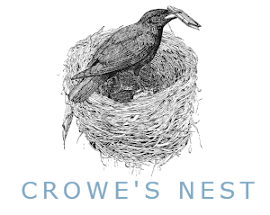Adventures Happen Away From the Parents
Characteristics:
This can happen with any parent dynamic-- it's all about getting the kids away from their guardians so that the adventure can begin. Once you get the kids away from parents / authority figures, you are free to take them on any adventure you'd like.
Okay, so yesterday we talked about the one where the adventures lie outside of where parents normally are. In that one, the kids go the places where kids normally go without parents. In this one, the kids go where they normally DON'T without parents.
Examples:
Okay, I'm going to do lots of examples on this one.
- In The Inventor's Secret, the two main characters have parents (and a grandpa who is heavily involved), but the action takes place at a boarding school for gifted kids, so they are physically separated from them.
- In The Runaway King, the main character isn't getting separated from parents-- he doesn't have any relatives-- he physically separates himself from his advisers and from his castle itself to sneak off and solve the big problems he couldn't from where he was.
- In Better Nate Than Ever, Nate hops on a bus to New York, and has his own adventures by himself in the Big Apple, while making his parents think he was at a friend's house.
- In Sunny Sweet is So NOT Sorry, all of the action takes place in a hospital-- one the two girls have gotten to themselves.
- In The Girl Who Could Fly, the main girl is taken by some evil people to something that's kind of like a boarding school. So she was physically removed from her family, although for most of the book, it wasn't by choice.
- Okay, let's talk Wizards. This is kind of a brilliant show, in that it treats this method very differently. The kids aren't physically removed from the parents, but they are removed. If you don't know the storyline at all, the kids can do magic, and are taught by their dad, who hasn't been able to do magic since he married their mom, who has never been able to do magic. So their separation is in their skills, not in location. They have to solve their own problems, since most of the problems are caused by using magic and the parents can't help.
And there you go! All eight! If you're an MG writer, which ones have you used before?
To those of you who celebrate Christmas, I wish you all a very happy Three-Weeks-Until-Christmas! (You're welcome for that






































2 comments:
Mmm, a little confused. How is this different than the last post - present parents but places where parents aren't? Aside from The Girl Who Could Fly.
Good question, Gwen! In the last one (#7), the action / problems / plot happens in places at home / school-- where they normally are in a given day. Places where their parent's aren't, but with their parents very nearby.
In this one (#8), they have parents at home, but they are far away. (Or it could be the opposite, like in Home Alone, where the parents are gone far away, but the kid(s) is/are home.) In this one, the parents aren't a short drive or a shout away. They are far enough away that if the kid got into any real trouble, the parents couldn't step in and save them the way they could in #7. It adds and extra layer of danger, extra opportunities for growth, and almost puts the kids into the same state as the orphan (albeit temporarily), where the requirement to save themselves / the day is greater, since they don't have parents who can swoop in.
*The exception, of course, being Wizards, where the separation isn't in distance, it's in magic. But the concept is the same-- the parents can't swoop in to save them, no matter how near physically they are.
Post a Comment